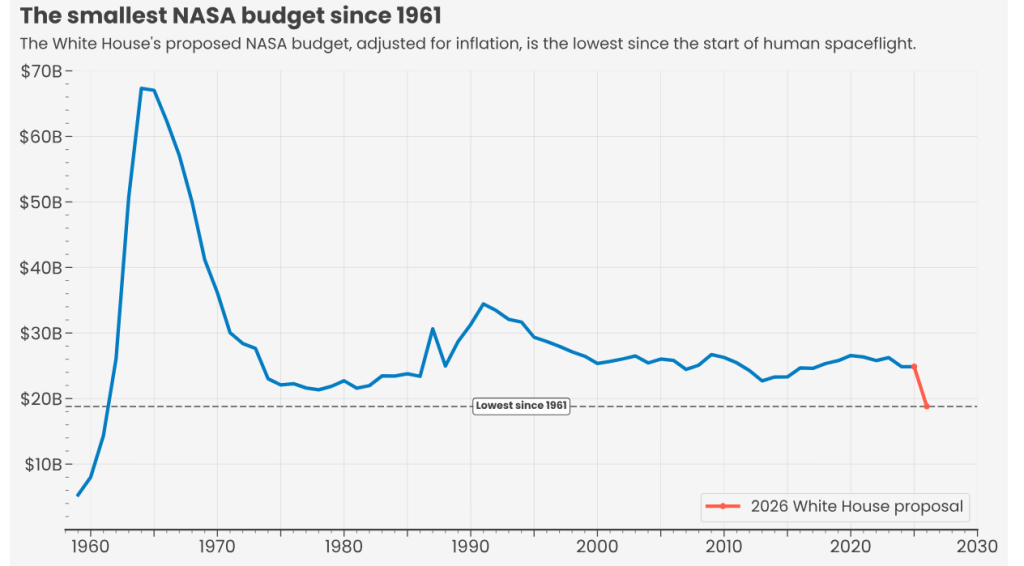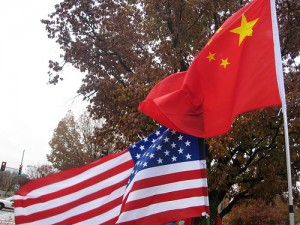The misunderstandings packed into this little bit of writing are stupendous:
Over the past few years, China has been in deflation, while the US has been in inflation. Yet despite this stark divergence, the CNH has still depreciated more than 10% against the US dollar. This combination — falling relative prices in China and a weaker currency — has made Chinese goods and services extraordinarily cheap in global terms. A vivid example: a night at the Four Seasons Beijing costs roughly $250, compared with more than $1,160 in New York
First, a 10% drop does not make a hotel room cost one quarter as much in Beijing as in New York. That’s ridiculous on the face. Almost everything costs less in China than in America. America has an economy optimized to drive prices high to extract maximum profit. China has economy with actual competitive markets: if you raise prices someone else will come in underneath you. Almost all of America is operating in or as if it is in an oligopoly. There is little actual price competition because even when there are competitors they figure that competing on price is stupid: it hurts both of them. Why not both raise prices to usurious heights? Win/Win.
This doesn’t happen in China because it has competitive markets and it has competitive markets in large part because China will throw executives in prison or execute them if they engage in this sort of price collusion, whereas in the US, though ostensibly illegal based on the laws on the book, such collusion has been made legal by decades of court decisions and prosecutorial decisions. (Prosecutors mostly don’t, and when they do courts almost always refuse to convict.)
China also has lots and lots of firms and genuine low barriers to entry. If you try to collude, someone from outside your industry will enter and undercut you, and often this will be someone with deep enough pockets that you can’t win a price war with them.
Second, currency values outside of hyperinflation are driven primarily by demand for currency. That isn’t primarily about trade, it’s about investors and financial carry trade. China unquestionably has a more dynamic and larger economy than any Western nation, but it isn’t financialized: Chinese companies don’t produce the sort of returns that American companies have over the last 50 years. This is deliberate policy: if they did, then China’s economy would suck for ordinary people, like Western economies suck for ordinary people because prices would be much higher. (See that Hilton room, though it cascades thru the entire economy, with rent and food at the low end much cheaper in China too.)
It is also pretty hard to invest in China as a foreigner, while the US is set up for foreign investors. Even if you want “China exposure” it’s hard to get.
So the Yuan isn’t in massive demand, because there aren’t bullshit over-sized returns like the AI bubble. The central bank doesn’t run its policies based on “the stock market must always go up.” America has spent 50 years burning down its real economy to produce outsize “profits” due to asset pumping. China keeps asset prices under control, and when a bubble does occur, as it did in real-estate, they deliberately deflate it, bearing the cost.
None of this is particularly unique, by the way. It’s basically the way the US economy was mostly run from the 30s thru the mid 70s or so. The policy details, the ways things are done are different, but American policies were meant to encourage real economic growth and if you look at a stock market graph you’ll see it traded sideways. No 50 year bull market. Asset bubbles were discouraged. You can’t have a good economy with high real-estate prices, just can’t be done and the stock market is a secondary market, not a primary one. Emphasizing it is sheerest insanity.
There is very little that China has done which is genuinely unique, despite jingoistic assertions otherwise. The playbook they have run is the same one almost every successful industrializing nation after Britain used, and very similar to the Japanese model. What is different are two things. First, the scale, when 1.4 billion people industrialize and modernize, it shakes the world. Second, a genuine desire to help the poor, which is extremely rare during industrialization, though not unheard of. (The Gilded Age did not care about the poor. Britain’s industrialization period was driven by hurting the poor as much, or more, than they could bear. They were far better off as peasants than in factories.)
Anyway, countries can be real rich (lots of genuine productive capacity with low prices and dynamic markets) or they can be fake-rich, with financialized markets that squeeze the last penny out of consumers and immiserate workers, leading to non-competitive markets and oligarchy. China is rich. America is fake-rich.
This site is only viable due to reader donations. If you value it and can, please subscribe or donate.


 It is now over 20 years ago that I first wrote that Israel would either become a single, secular state, or it would ethnically cleanse or genocide the Palestinian. There were no other solution sets: the land is not actually large enough, nor does it have enough water to divide it into two states and in any case, it was obvious Israelis would never go for that.
It is now over 20 years ago that I first wrote that Israel would either become a single, secular state, or it would ethnically cleanse or genocide the Palestinian. There were no other solution sets: the land is not actually large enough, nor does it have enough water to divide it into two states and in any case, it was obvious Israelis would never go for that.

While reading deeper, I found something much more important: a lot of these new humanoid startups aren’t building from scratch. Instead, they’re standing on the Unitree G1 frame and layering their own proprietary AI on top. That means Unitree has quietly become the default hardware platform for China’s humanoid boom — like the Android of robot bodies.
A few examples:
1. A-Bots Robotics (Shenzhen, 2024)
• Focus: precision assembly, modular SDK
• AI layer: Baidu Ernie-ViLM for object manipulation
• Notes: 150+ units in Foxconn trials; ~$22k package; tuned for fragile electronics
2. HPDrones Tech (Guangzhou, 2023)
• Focus: warehouse logistics + drone hand-off automation
• AI layer: proprietary SLAM + multi-floor routing
• Notes: partnered with Unitree; 500-unit rollout for e-commerce warehouses in Q1 2026
3. LeRobot Labs (Beijing, 2024)
• Focus: open-source robotics + reinforcement learning
• AI layer: embodied datasets, tool-use improvisation
• Notes: hacked 20+ G1s for universities; GitHub repo exploded; expanding to eldercare
4. Weston Intelligence (Hangzhou, 2023)
• Focus: healthcare — vitals scanning, bedside conversations
• AI layer: Tencent Hunyuan conversational model
• Notes: deployed in Shanghai hospitals; sub-$20k price; measurable patient-compliance benefits
5. DexAI Dynamics (Shenzhen, 2024)
• Focus: dexterity — folding fabric, micro-adjustments, teleop self-supervision
• Notes: $80M raised; 100 units deployed in garment factories; arguably the best hands in China now
And then there’s MindOn — the one that caught my eye earlier — using the G1 frame to build a full butler/housekeeping robot (“MindOne”). One of their engineers even said they eventually want their own frame, but that’s the point: everyone is starting on Unitree first.
Unitree has locked down the humanoid robot ecosystem
All these startups — even if they eventually design their own skeletons — are still tying their early models to:
• Unitree’s frames
• Unitree’s actuator supply chain
• Unitree’s low-cost motor ecosystem
• Unitree’s software layer and APIs
Once you build your first few generations on someone else’s chassis + firmware, you’re effectively locked into their ecosystem. Switching costs explode. You’d have to rewrite half your AI stack.
So Unitree has already achieved what Western robotics companies wish they could do:
Become the default hardware substrate for an entire national robotics industry.
This is exactly how China overtook the West in EVs — standardized hardware, cheap mass manufacturing, and dozens of startups building on top of the same base.
Unitree is still a private company.
Given everything above, the most obvious question becomes: When does Unitree IPO?
On 15–16 November 2025 (literally this weekend), Unitree completed its pre-IPO regulatory tutoring with CITIC Securities — an unusually fast four-month process that normally takes 6–12 months.
The company publicly stated in September that it expects to submit the formal prospectus and listing application to the Shanghai STAR Market between October and December 2025.
Market sources still quote a targeted valuation of up to US$7 billion (≈50 billion RMB).
Once the prospectus is accepted (usually 2–4 rounds of CSRC questions), the actual listing can happen remarkably quickly in a hot sector — sometimes inside 3–6 months. A Q1/Q2 2026 listing is the base case, but a very late-2025 listing is still possible if the regulator fast-tracks it the way they have the tutoring.
What About America?
Meanwhile… America’s Great White Hope Elon Musk is already behind.
Elon Musk promised that the U.S. would lead the humanoid robot race with Tesla Optimus — but the timelines have slipped, and the window has basically closed. By the time Musk’s robot is actually ready for real-world deployment — 2 years from now? 3? — China’s robotics companies will already be deep into mass production, with tens of thousands of units deployed across factories, warehouses, homes, hospitals, and service industries.
And let’s be real — we all already know this:
Tesla will NOT be cost-competitive. Not even close.
China has already hit the sub–$20k price point for serious humanoids. Several G1-derived platforms will likely break below $15k. Meanwhile, Tesla Optimus — if it gets out of prototype limbo — will land somewhere between $20k–$40k+, before customization, localization, or integration costs. It’s the exact same pattern we saw with EVs, solar panels, drones, lithium batteries, telecom gear — the U.S. builds one expensive proof-of-concept; China builds ten factories and ships globally.
So yes, Tesla’s robot may survive inside the U.S., but only through:
• tariffs,
• import bans,
• national-security excuses,
and whatever industrial-policy tool Washington can wield.
It won’t survive on merit. It will survive on protectionism.
But step outside the U.S.?
Why would any ASEAN, Middle Eastern, African, or Latin American country buy a Tesla robot when Unitree, UBTech, XPeng, and others are offering machines that are:
• cheaper,
• and available now — not in 2027,
• generations ahead and more advanced by 2027.
You think Indonesia, Malaysia, Brazil, Mexico, Turkey, or Saudi Arabia is going to pay double the price for a worse robot just to keep Washington happy? You think they’re going to turn down a $12k Unitree or $16k UBTech because Trump tries to bully them into paying for a $35k American robot instead?
The U.S. will absolutely try to pressure, coerce, or outright threaten developing countries into “buying American” — the same way it pressures them on telecom, semiconductors, energy infrastructure, ports, and industrial policy. But this time I don’t think most countries will obey.
They have options now.
By the time the U.S. finally ships its first commercially deployable humanoids in 2–3 years, the rest of the world will already be locked into the Chinese robotic ecosystem — Unitree frames, Chinese actuators, Chinese SDKs, Chinese AI integration, Chinese supply chains.
The EU, Australia, Japan, South Korea, and Taiwan — effectively U.S. satellites — may follow Washington’s orders and switch to American robots. Maybe. If their economies in two years can still afford it.
Everyone else?
Forget it.
Forcing U.S. factories and businesses to buy “American-only” humanoid robots — which will be more expensive and less advanced — will cripple U.S. competitiveness across the board.
If American companies are stuck paying $30k–$40k per unit for less capable Tesla or U.S.-made robots, while factories in China, Malaysia, Indonesia, Brazil, Vietnam, Mexico, Turkey, and everywhere across the Global South are deploying $12k–$18k Chinese robots at scale, the cost gap between U.S. and foreign manufacturing will explode. And it won’t stop at robotics — it will cascade downstream into every single sector that depends on automation:
• logistics
• warehousing
• construction
• agriculture
• textiles
• electronics assembly
• packaging
• even retail, service, and hospitality
If U.S. firms are locked into a high-cost, low-capability robotic ecosystem while the rest of the world uses cheaper, better, faster machines, then every American industry that relies on automation gets structurally handicapped. That’s not just a disadvantage — that’s YUGE and permanent.
So Trump’s protectionism will actually accelerate the decline of U.S. manufacturing competitiveness. Because the battlefield is no longer labor cost — the battlefield is automation cost.
And China will win that fight by orders of magnitude.
This is also why I doubt even America’s closest aligned countries will follow U.S. orders when Washington eventually demands they drop Chinese robots and buy American ones. Unless they’ve developed a death wish for their own industries, they simply can’t afford to sabotage themselves like that — especially when their economies will likely be in even worse shape two years from now.
Except Europe. Europe will probably obey, because their heads are shoved so far up America’s arse they can’t even think straight — and then there’s that incessant, obnoxious demand of theirs: “You must stop be friend with Russia first or we won’t play with you!”
In my opinion China will eventually move toward some form of universal income or redistribution. Once robots replace most human labor, the state will simply “tax” robotic productivity — in whatever form it chooses — and channel that output back to the population. China can do that because the government actually has the authority, the ideology, and the political structure to redistribute.
After all, that’s the logical endgame of communism, isn’t it? A fully automated productive base supporting human welfare.
America? No such luck.
In the U.S., the elites — the top 5%, or really the top 1% — will own the robots. They’ll own the factories, the logistics chains, the land, the means of production, and the automated labor force. Everyone else below them will get… nothing. No jobs, no prospects, no future, nada. Just a growing underclass structurally locked out of the new automated economy, where human labor is obsolete and redundant.
And unlike China, the U.S. government can’t — and won’t — redistribute. It won’t tax robots because it won’t tax the ultra-rich. It won’t implement a universal income. It won’t structurally rebalance anything. The millions displaced by automation will simply be left to rot — not because the technology is bad, but because the political system is incapable of adapting to it.
And if there’s one thing I’ve learned comparing Americans and Chinese: Americans are astonishingly ideologically rigid, stubbornly wedded to outdated principles even when reality punishes them. The Chinese, by contrast, are pragmatic — willing to bend, adapt, and change. That adaptability will matter a lot when robots replace human labor and make capitalism, as we know it, obsolete.
That’s why America is panicking. They know they can’t adapt.
Ian Comments: again, China is ahead in most technologies and they have an unparalleled ability to scale. Once they scale, no one else can compete. You either find a place where you’re ahead and concentrate on staying ahead, or you find a niche. It used to be that China didn’t feel the need to be ahead in everything, but Trump, in his first time, with his sanctions, changed that. The Chinese realized they had to own full stack of everything.
One side effect of this is that Musk isn’t going to get his one trillion dollar payday. It’s based on him hitting targets, including in humanoid robots which he won’t be able to make, because Tesla’s too far behind and lacks the ability to scale.
More on the transition away from labor-distribution capitalism soon.
And great piece by KT. Thanks for letting me post it.